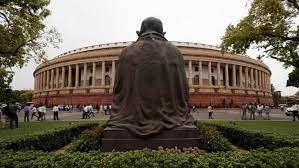After fulfilling key promises such as the construction of Ram temple in Ayodhya and abrogation of Article 370, the ruling BJP is now focussed on the party’s agenda of simultaneous polls in the country.
The Modi government has constituted a committee headed by former President Ram Nath Kovind to explore the possibility of ‘one nation, one election’.
Since coming to power in 2014, the Modi government has been a strong votary of simultaneous polls, citing financial burden caused by an almost continuous election cycle and jolt to development work during the polling period.
The Kovind-led panel will explore the feasibility of the exercise and the mechanism to see as to how the country can go back to having simultaneous Lok Sabha and state assembly polls, as was the case till 1967.
India had simultaneous polls before — national and all assembly polls were held together in 1951-52, 1957, 1962 and 1967.
The latest move comes a day after the government called a special session of Parliament between September 18 and 22, the agenda for which is under wraps.

Although there is speculation that the government could table the ‘one nation, one election’ bill in the upcoming session, it may not be the case given it will involve a long process of public consultations and feedback from various quarters.
The primary challenge would be to sync the terms of various state assemblies with that of the Lok Sabha.
A 1999 Law Commission report had argued in support of simultaneous elections, but another draft report by the Commission in 2018 said that “simultaneous elections could not be held within the existing framework of the Constitution.”
It would require multiple constitutional amendments, especially Article 83 and Article 172, which stipulate a five-year term for the Lok Sabha and state assemblies, respectively, from the date of the first sitting.
With the BJP’s performance in state polls often inferior to its show in Lok Sabha elections, party leaders are of the view that simultaneous polls will result in national issues taking centre-stage and the ‘Modi factor’ playing a bigger role, stripping regional leaders of some of their sway.
